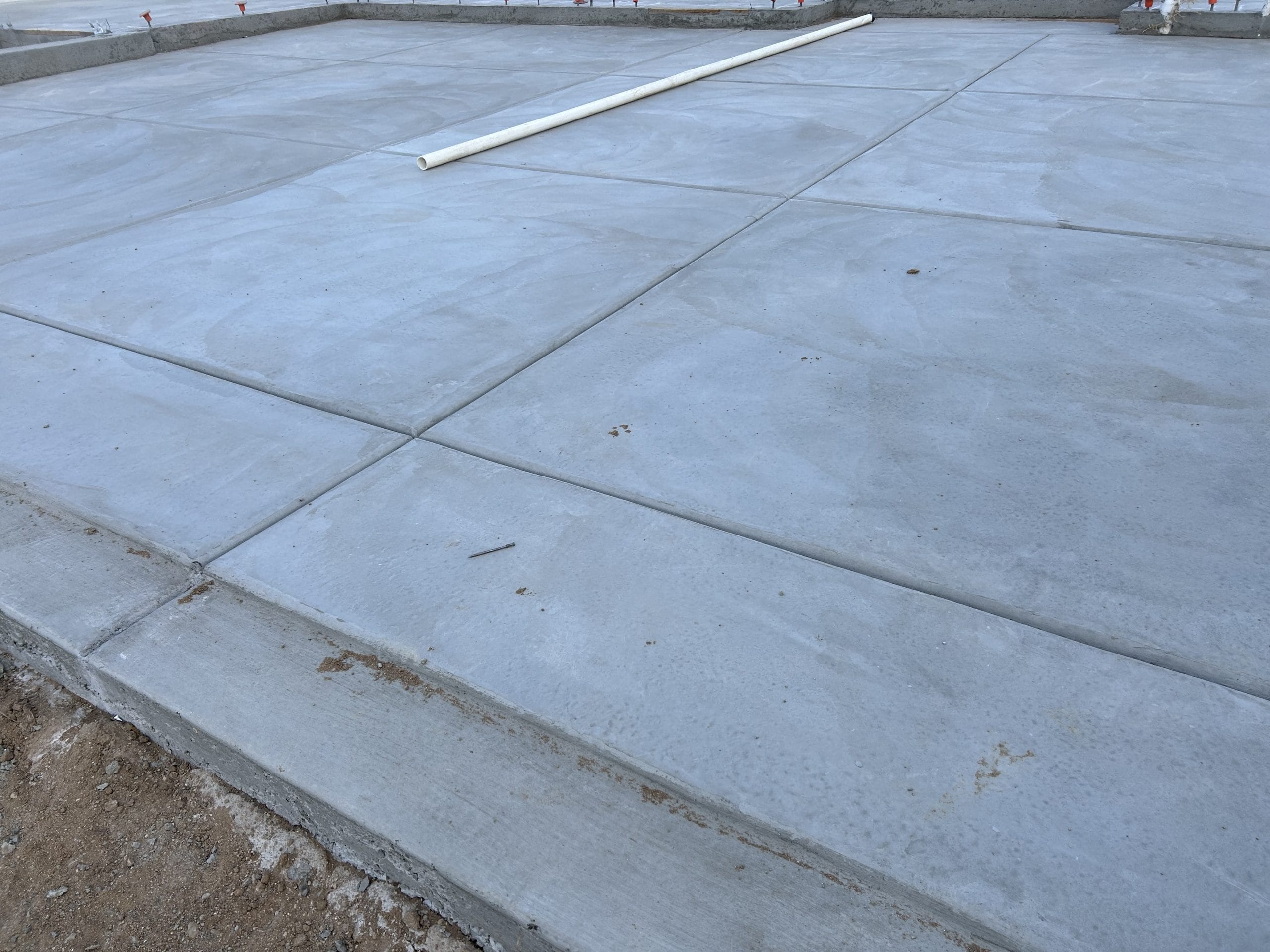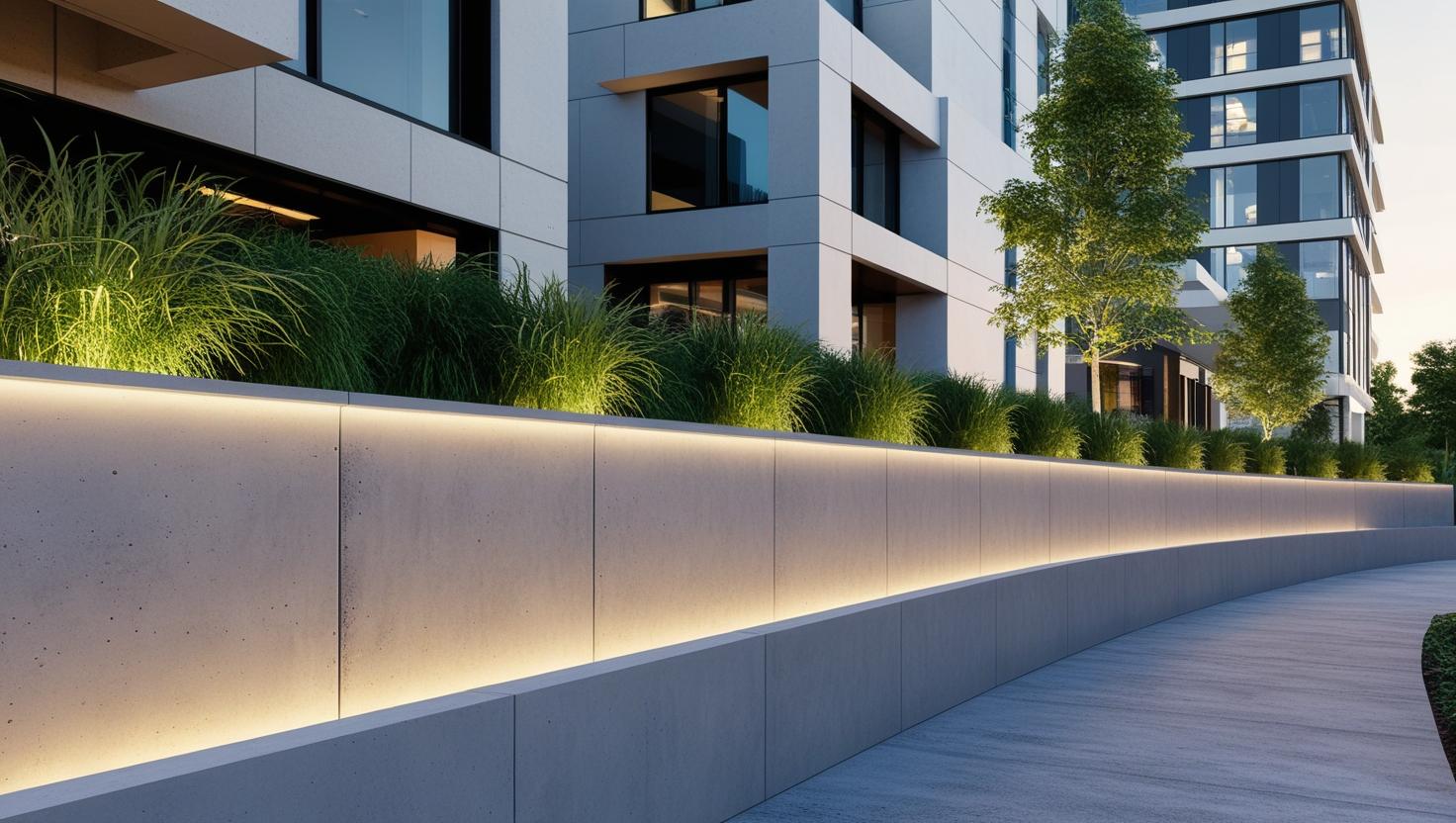Concrete Foundations in Grand Prairie
We’ll make quality and durable concrete foundations and retaining walls made to last and keep your structure safe and stable.
Concrete Foundation Service
Concrete foundations and retaining walls are structural components, of course. The structure has to successfully keep its shape after supporting whatever the load is. A weak foundation or wall will have an increase in wear and tear or may even collapse. Understanding the benefits, types, and installation process can help homeowners and business owners make the best decisions for their projects.
A foundation really is that part of a building where the entire structure sits and eventually settles. While it plays a large part in keeping the structure intact, it also ensures strength and stability. The lack of a sound base is a common reason why many structures fail over time. Concrete is preferred for most foundation types since it can withstand many loads and is water-resistant once properly cured.

A slab foundation is a large chunk of concrete smoothed out on the ground and is often used in areas with mild climates. Crawl space foundations are like boxes making room below the structure for ventilation and easy access to things like plumbing or electrical utilities. A basement foundation provides an added living or storage space below the house and serves protection from severe weather conditions outside.

Concrete Base & Groundwork
Concrete foundations are super strong and can support very heavy loads, making them ideal for residential and commercial buildings. They also offer excellent resistance to moisture, reducing the likelihood of mold and mildew growing. They require low maintenance and extend over a long lifespan, frequently lasting for several decades without any major repairs.
One of the positive pieces of a well-installed foundation is that it prevents soil movement from affecting a building. Often over time, soil expands and contracts as moisture changes. Concrete foundations minimize the effects, thereby preventing cracks and destruction to the structures above.
A retaining wall is made to further hold back the soil and prevent erosion. These walls are built within landscaping, especially in an area that tends to be sloped, to allow for more level surfaces for things like gardens, driveways, and patios. So, they not only enhance the look of an outdoor space, but they are also functional in preventing soil erosion and controlling water drainage.
There are several types of retaining walls like gravity walls, cantilever walls, anchored walls, and segmental walls. The gravity wall is kept in place by its very weight and would be used best for smaller projects. The cantilever walls make use of a concrete base and reinforced steel, which is ideal for larger walls. Anchored walls are made up of cables and anchors for support, allowing them to hold back larger weights of soil. A segmental retaining wall is made up of separate mobile blocks.
There are several types of retaining walls like gravity walls, cantilever walls, anchored walls, and segmental walls. The gravity wall is kept in place by its very weight and would be used best for smaller projects. The cantilever walls make use of a concrete base and reinforced steel, which is ideal for larger walls. Anchored walls are made up of cables and anchors for support, allowing them to hold back larger weights of soil. A segmental retaining wall is made up of separate mobile blocks.
Concrete retaining walls are very tough and sturdy to resist pressure from water and soil, and when properly built, can last a lifetime. Contrary to wood or brick walls, concrete walls are not going to rot, warp, or break. In addition, these types of walls require almost no maintenance and can stay put practically forever with barely any attention.
Another benefit of having a concrete retaining wall is the aspect of moving water downhill, making sure whatever toxic things are lying underneath it are forced away. Well-designed retaining walls include drain pipes and weep holes that allow water in, preventing it from building up and causing damage and also allows to be drained away. This would be an excellent choice for homes that experience a lot of rainfall or have drainage issues with the soil.
Concrete Retaining Walls
The installation process requires careful planning as well as expertise. Pre-construction steps call for soil adjustments by clearing and leveling, and creating and setting up formwork locations. After that, concrete is poured, making sure that it has been evenly spread and is well reinforced through the addition of rebar or wire mesh. The curing process is critical for further hardening.
Specifically for retaining walls, the process involves excavation and laying the foundation of the compact gravel or crushed rock in the base of the wall. Then, the wall is built up one layer at a time, making sure each section is solid and well-reinforced.

The drainage and supporting features with gravel backfill and weep holes are added to prevent water-logging that could eventually push the wall over. Finishing touches can then be added, like decorative coatings or landscaping features like lighting, to further enhance the characteristics of the wall.
A concrete foundation or retaining wall is an important aspect of every construction or landscaping project. They offer structural stability, soil erosion preventive measures, and can easily beautify a home or business. It can be a foundation for a new house or a retaining wall for managing a sloped lot, either way, the guaranteed best in durability and protection lies with a quality concrete installation process. Knowing the various types and advantages of concrete foundations and retaining walls may help encourage homeowners and contractors to make choices and help them with their projects to a safe and successful conclusion. Hiring a seasoned concrete contractor is important to the success of a foundation or wall project. A professional will check out soil conditions and recommend the best types of materials. Lucky for you, we are a phone call away!
Concrete Company in Grand Prairie, TX for Slabs & Retaining Walls
Call us today to find out how our custom concrete work can make your property look great just the way you want!
Contact Us Today!
New installations, repairs, or complete replacements, we handle projects of any size with the same dedication to quality. We take time to understand your vision, budget constraints, and timeline expectations before proposing results that meet your needs. You could be planning a small patio extension or a complete commercial parking lot reconstruction, we bring the same expertise and attention to detail. Straightforward installations move quickly from estimate to completion.
Direct communication with us eliminates middlemen who add costs and create delays. You work with the professionals who perform your installation, ensuring your specifics are understood and applied correctly. Questions receive immediate answers from those familiar with your specific project rather than being filtered through layers of communication. This direct relationship builds trust and ensures accountability throughout the process.
Expert installation, quality materials, and attentive service combine to create concrete surfaces that improve your property and provide lasting value. Let’s discuss how we can help with your next project. We’ll schedule a convenient time to visit your property, assess your needs, and provide detailed recommendations fitted to your goals. Your satisfaction remains our priority from initial contact through final inspection.
FREE Estimate!
Frequently Asked Questions
Most homes and buildings in Grand Prairie use slab-on-grade foundations, pier and beam foundations, or basement foundations. Of all these, slab foundations are the most common due to the area’s clay soil, which expands and contracts with moisture changes.
Common materials for retaining walls include concrete blocks, poured concrete, stone, and brick. In Grand Prairie, concrete is a popular choice because it’s strong and lasts a long time.
